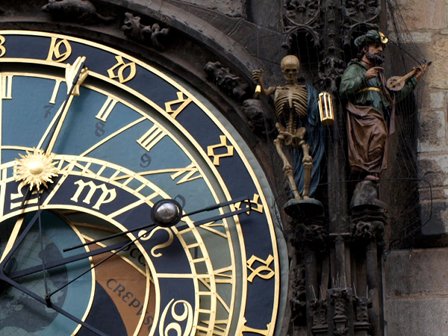I woke up this morning like any other morning, scanning the news and blog websites I like and taking a few minutes to write my daily horoscope forecast. The way I usually approach writing, my forecasts involves looking at the planetary placements, considering the patterns my clients are dealing with, and then seeing if anything connects the dots or stands out in the headlines.
This morning I was thinking about all the “risks” my clients are taking and how unsure the future feels for so many people. More than a few of my clients have talked about upcoming decisions and the risks involved in terms of the word “suicide,”: professional, emotional, relational, karmic suicide if such and such doesn’t work out.
Interestingly the front page of CNN this morning was covering the carefully planned suicide of professional journalist and sportswriter Martin Manley. My horoscope for the day was about the astrology of suicide and risk taking, and it turned into a classroom investigation with my astrology students. Martin Manley’s birth chart and the time of his death argue strongly for the side of “predictable fate,” and yet his death was carefully planned and his death website is devoted to the subject of “death by choice.” What should we make of this?
First let’s take a moment to explain the story of Martin Manley and his elaborately planned and carefully documented suicide website. In the spirit of the same honesty I think Martin Manley would advocate, I think it’s better to behold the website yourself than for me to explain it, so try visiting the website first. The original website has been taken down by Yahoo after it immediately went viral, but since then family members and anonymous hacker groups have attempted to reinstate the website. The short version of the story is that Martin Manley knew for many years that he wanted to end his own life, not because he was depressed or in debt or lonely or into drugs or anything like that. He wanted to end his life because he could, and because he felt that it would be a unique way to be remembered.
Before Manley died he created an elaborate website telling the story of his life, including his decision to commit suicide. The top left 12 categories include what Manley had to say about his death, and the bottom 34 categories speak to his life. In the death section Manley included sections like “Why Suicide?” “Why not?” “Why Age 60?” and “Self Serving?” In the life section he included things like “My Religion” “Two Marriages” “Writing Fiction” and “Sports.” In each section Manley is surprisingly clear, frank, funny, happy, and intelligent. His overall argument is also very straight forward: Manley wanted to choose his own death, rather than become vulnerable in old age, and he wanted to be remembered for choosing his own death in a highly organized, clear, and intelligent way.
The immediate question I found myself asking as an astrologer was, “what were the planets doing?” I wanted to know straight away because the story was too pronounced in the media, the suicide too calculated (remember astrology is all about timing), and the mythic themes were too archetypal for the planets not to be involved somehow. When I looked at several key charts involved with Manley’s story I was truly impressed by the symbolic resonance. Here is the ultimate riddle of astrology…how is it that even the most seemingly independent of actions and motivations (the choice to take one’s own life) can show up in the patterns of the planets…giving the appearance of destiny or fate?
To begin with, at the time of Manley’s death, 5:00 am, on August 15th 2013, on his 60th birthday, the Moon in Sagittarius (the preacher, sage, and traveler) was squaring Neptune in Pisces (mystical union, redemption, and escapism). Manley’s time of death was a clear and overt expression of the deeper themes involved in his death: the desire to preach a message (Moon in Sagittarius) on the subject of death and suicide and escapism (Neptune).
Looking at Manley’s birth chart alongside of the planetary transits at the time of his suicide a number of obvious themes stand out right away (don’t worry if you don’t understand the technical jargon, the explanation will follow). Manley was born under a Sun/Pluto conjunction in the sign of Leo. He was also born with a south node in Leo conjoined with Mercury and Mars in Leo. Jupiter in Gemini made a sextile to his Sun/Pluto conjunction, and so did the triple conjunction of Neptune, Saturn, and the Moon. The Sun/Pluto conjunction in Leo emphasizes his inner battle with the subject of personal authority and volition (Sun/Leo) against the power and authority of death (Pluto in Leo). The Mars/Mercury and south node combination suggest the authority and force of one’s mind and voice, and again there is the emphasis on personal authority (Leo).
The south node suggests past life karma or resonance with this pattern. In previous lifetimes perhaps Manley was someone who issued violent decrees or death sentences or was someone who was an authority on the subject of death. The Libran stellium suggests a sophisticated quality of judgment and balance. Perhaps Manley was literally a judge in a previous lifetime or perhaps he was someone who weighed the lives and fates of others. The Saturn/Neptune theme echoes the troubling relationship between bliss and divine fusion (Neptune) and the earthly realities and limitations of the body and aging (Saturn). The Moon suggests the deep and long standing familiarity with these subjects, and again seems to suggest that this was an old story for Manley. The Jupiter in Gemini placement certainly points toward his career as a journalist, but it also suggests that Manley wanted to communicate his authority intellectually and to a broad or vast audience of readers and listeners.
Even the layout of his website, including the subject of death and suicide but also his life and his memories, mirrors the Sun/Pluto in Leo conjunction: the sun is choice and freedom and Pluto is death and inevitability.
Manley’s final orchestration was in many ways a perfect synthesis of his destiny path (Pluto/Sun in Leo), and yet again something about the symmetry of it all (something Manley expresses his love for most eloquently when describing his decision to end his life on his 60th birthday, a neat and symmetrical number) gives us reason to scratch our heads and dig a little deeper. Was suicide really this man’s free will choice? If his actions could be literally mapped out and thematically predicted through his birth chart, then did he really take his own life? Was he really the one running the show? Or was his death perhaps an expression of planetary or karmic fate? The question seems worth asking since Manley himself expressively believed that his fate was in his own hands.
There were other transiting planets making important aspects at the time of Manley’s death that give us more clues.
Transiting Uranus in Aries (a planet related to shock and awe, emancipation, and rebellion, in the sign of aggression and will power) was making trine to all of Manley’s planets in Leo (including Mercury and Mars). By shooting himself in the head (Mars and Aries) Manley certainly sent a shocking and rebellious message about the subject of death and free will (Uranus). But even more importantly, the planet Uranus happens to be the ruler of Manley’s north node (destiny point) in the sign of Aquarius.
Within weeks of taking his own life, Manley’s shocking and violent death has sent an undeniably controversial and “outside of the box” message to millions of people around the world (via the Aquarian internet no less). Transiting Uranus also happened to be squaring Manley’s natal Uranus in the sign of Cancer at the time of his suicide (home, comfort, emotional security, nourishment, mother, etc).
On the other hand with a north node in Aquarius there is no doubt that Manley was here in large part to move beyond the obsession with his own personal voice, power and destiny (south node Leo). If his final contribution was all about his own personal power and destiny, can we really say that he accomplished what he was here to do?
Our first reaction to this question might be, “who are we to judge any of this?” and I agree. We can’t provide ultimate answers to these questions. Yet each year astrologers handle thousands of suicide charts, and each time we receive a suicide chart we are faced with the difficult task of trying to sensitively address the patterns present at a person’s death (for better or worse). If we’re doing good astrology, then we can offer insights (not answers) with kindness and sensitivity. With Manley’s chart I found a deeper layer of information when I looked at his north node’s ruler Uranus (which offers us more insight into what he was here to learn in this lifetime).
Manley’s natal Uranus happens to square the planets Neptune/Saturn and the Moon in Libra. In a section on his growing up years, Manley writes,
“My parents both worked. Even worse, my mom worked nights. So we didn’t have a normal family time together. Despite my mom working multiple jobs and my dad working, we were always poor. I used to quip that my two favorite toys when growing up were a stick and a rock. And I would get one sock for my birthday in August and the matching sock for Christmas. We lived in an old farm house and the floor in my bedroom was so sloped that I raced checkers from one end of the room to the othe…and kept stats on it! Due to the environment, I quickly learned how to entertain myself and it eventually culminated in me being extremely self-focused as well as self-sufficient. There was only one thing to do every day — satisfy whatever curiosity I had. In some respects, that became an obsession….looking at it from the perspective of committing suicide at age 60, my independent nature is probably why I found myself in this position in the first place.”
The Uranus in Cancer transit of the 1950’s has been spoken about by many astrologers as a changing time for families, and especially for the role of women in families. Manley’s north node in Aquarius with ruler Uranus in Cancer (conjoined with Venus in Cancer) suggests the disruption of both his family life and his experience of the divine feminine archetype (Venus). In contrast to the strong individuality of his Sun/Pluto placement in Leo, Manley’s Uranus/Venus in Cancer square to his Libran stellium (including the Moon in Libra, ruler again of the home and family and divine feminine) suggest that his relationships with others were wounded because of early childhood neglect (maybe even abuse).
If home was a place of negation and loneliness (Saturn/Moon) or if Manley escaped into his own world to avoid the pain of being alone in his own house (Neptune/Moon), then isn’t it possible that his obsessive independence (Sun/Pluto in Leo) was also self-aggrandizing or escapist in nature? Isn’t it possible that in a world of familial neglect, lack of nourishment, and the absence of his mother (which he mentions especially), that Martin Manley decided that his survival mechanism (Pluto) and his defense against his own vulnerability (Uranus/Venus in Cancer) would be to rely solely upon his own authority, upon numbers and statistics, and upon his intellect and writing? Could it be that in a former lifetime Manley was an authority on death, or someone who judged the fates of others but struggled to accept his own death or fate?
On the other hand, again, one could just as easily argue that Manley’s message of self-dignity in death, his honesty and openness, and his clear message to the masses about these subjects was a revolutionary action consistent with the north node/Aquarian and Uranian themes of destiny in his birth chart, not to mention his Sun/Pluto conjunction in Leo.
Isn’t it true that Martin Manley is a kind of hero after all? He lived his life the way he wanted to live it, and he ended his life the way he wanted to end it. Something about his documentation of his own death is astonishingly courageous, not to mention controversial and history making. Nonetheless, the paradox at the heart of a “well thought out act of independent life taking performed by a statistician in an astrologically explainable or ‘fated’ way” stares us blankly in the face, demanding something more than pat answers about his karma or destiny.
The truth is that astrologers are faced with this exact dilemma all of the time, and so is everyone else. Every single day we live perplexed by the workings of fate and free will. We create things and take major risks by what we consciously or unconsciously choose “not to do” as much as we consciously or unconsciously choose “what to do,” and we suffer life consequences in the exact same way. At our worst, we live our lives reacting to circumstance after circumstance as though they were “beyond our control” or as though our actions put us fully into the driver’s seat.
Lately in my practice people have been using the word suicide to describe the risks or potential failures they are facing in any number of areas of their lives. We most usually say someone committed professional suicide or emotional or relationship suicide when they did something that looks to us like a sacrifice of their control or a decision too risky. Yet at the same time we often honor and respect people who take great risks and somehow find a new level of freedom as a result. We might say “so and so committed professional suicide by taking that job,” and then later we might say “she took a real risk, she’s a real pioneer!”
The point of this example, and the reason I use the strange case of Martin Manley’s suicide, is really simple. We are co-creators. There is no such thing as extreme as the words “suicide” and “fate” or “freedom” often implies. We can’t take our own lives because they are not fully ours to take. We cannot “risk everything” because everything we have is not just ours to risk. We cannot live on forever because of the personal choices we make or the things we create, because everything is cooperatively made and everything has a lifespan of its own, and eventually all things, even memories, sacrifices, mistakes and accomplishments, pass away.
A testament to this is the fact that Manley paid for his site to be active for five years but it was immediately removed by Yahoo and is now being fought over and discussed by people other than Manley himself. A testament to this is the fact that astrologers, always so focused on “birth,” are learning more about fate and free will from the moment of this man’s death (and it’s likely that Manley never saw a professional astrologer during the course of his life).?? So the best it seems we can do is to live mindfully in the present, aware that our choices and our lives are an intricate weave between the decisions we make and the ones we do not, between the person we are becoming and the person we are no longer, between the risks we take and those we do not, between the ways in which we are vulnerable and the ways in which we are strong.
Life is like a breathtaking symphony with twin conductors, fate and free will, and there is truly no such risk as the word “suicide” often implies. Martin Manley seems to be one of the most unique and perplexing suicide case studies astrologers have ever had the chance to contemplate, and the answers of his chart, in my opinion, lead us to these exact same “co-creative” conclusions.
So the simple take away: don’t stress too hard about whatever risks you are taking right now…they are probably both way bigger and way smaller than you can imagine. They are also nowhere near as personal, provocative, and independent as you think they are. Mantra for the day: When the universe made me, I was a risk worth taking. All of life is risky because it is delicate. And it’s also not at all risky because life is infinitely strong, woven together in meaning, no matter what.
Image by mararie, courtesy of Creative Commons license.











